Author: June, TechFlow
Is it a waste of $1,500 to join Network School, the experimental community founded by former Coinbase CTO Balaji Srinivasan?
The author visited Network School in Forest City, Malaysia to find out more.
Building a Network School in a Real Estate Ghost Town
In August 2024, Balaji officially announced via Twitter that Network School would conduct a 90-day trial operation phase from September to December of the same year.
Balaji excitedly tweeted: “Through the power of Bitcoin, we now own a beautiful island near Singapore where we are building Network School.”
This tweet quickly attracted widespread attention and discussion in the Web3 community. Balaji's wording made people full of longing for this "beautiful island." However, the reality is much more complicated.
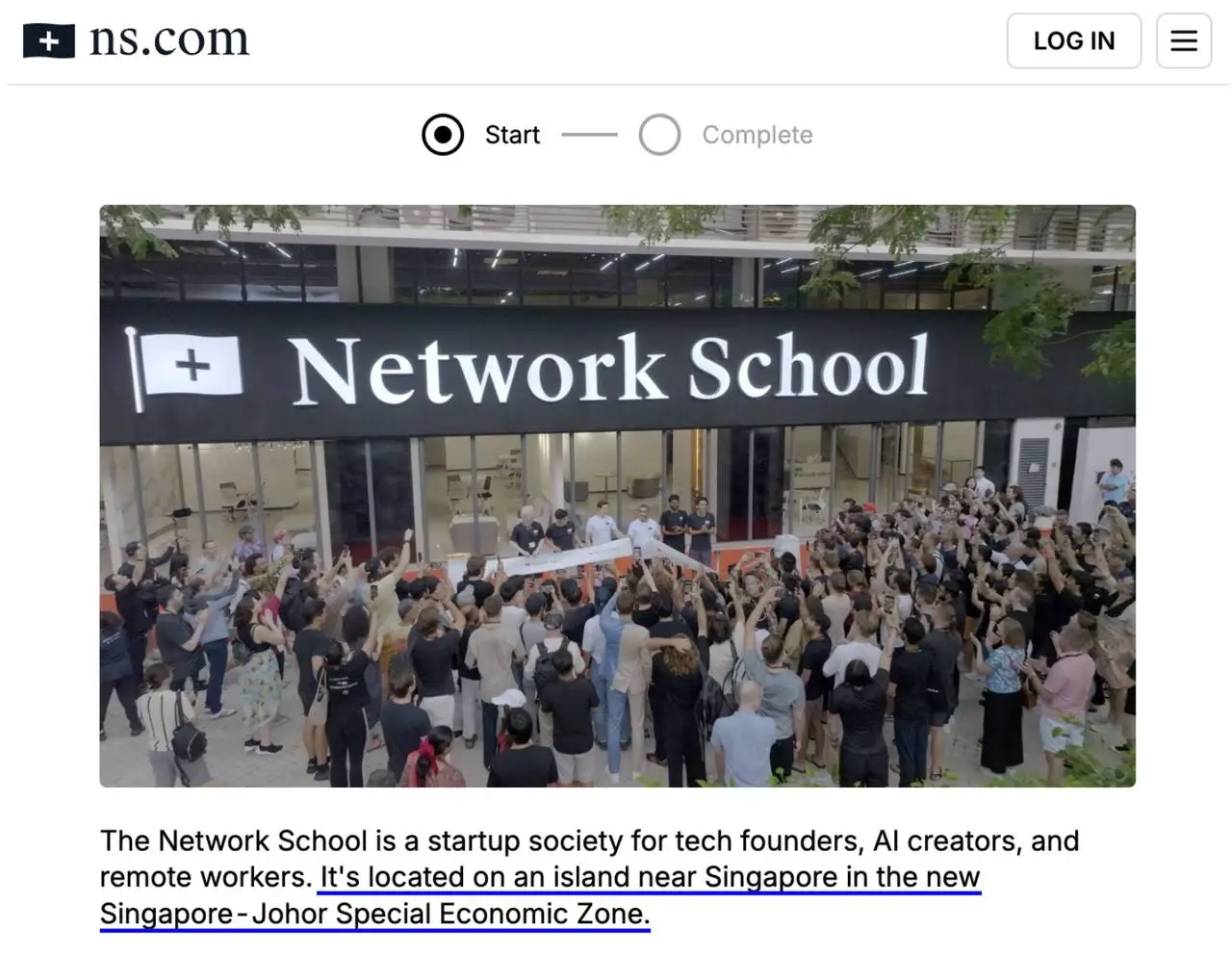
To be precise, Network School is located in Forest City, Johor, Malaysia, about half an hour's drive from the center of Johor Bahru.
Forest City, a large-scale project developed by China's Country Garden, consists of four artificial islands. However, with the real estate market becoming sluggish in recent years, the Malaysian project has not been immune.
The BBC even called the city a "ghost town," with numerous modern skyscrapers but few people, making it look like an abandoned city. This is another microcosm of the downturn in the real estate market and the difficulties faced by real estate companies in surviving.
Excellent geographical location
It is undeniable that Forest City’s geographical location is still extremely advantageous.
Forest City is only about an hour's drive from Singapore, and Network School provides dedicated round-trip transportation for members. Furthermore, separated from Singapore by a narrow strait, the city-state offers a relatively affordable cost of living. As a major international financial center and tech hub, Singapore hosts numerous key crypto events and conferences, providing Network School members with excellent learning and networking opportunities.

However, there is always a gap between ideal and reality.
Despite its prime location, daily convenience still needs significant improvement. Residents rely primarily on ride-hailing services like Grab to reach the nearby city center, and public transportation infrastructure is relatively limited, limiting community members' mobility and convenience.
This relatively isolated and desolate state has, to some extent, created a unique atmosphere for the community.
Welcome to Network School
People who visit Forest City for the first time may be a little surprised by what they see.
Walking into the forest city, what hits you is the coexistence of modernity and desolation.
Lush greenery gives the area a vibrant feel, creating a stark contrast to the long-closed shops. Every building's balcony is covered in lush greenery, living up to its name, "Forest City." Chinese elements can be seen everywhere: spicy hot pot restaurants, Chinese supermarkets, bright red lanterns, and familiar Chinese signs, creating a sense of being transported to a small Chinese town. The empty streets and scattered shops are occasionally bustled by explorers from around the world.
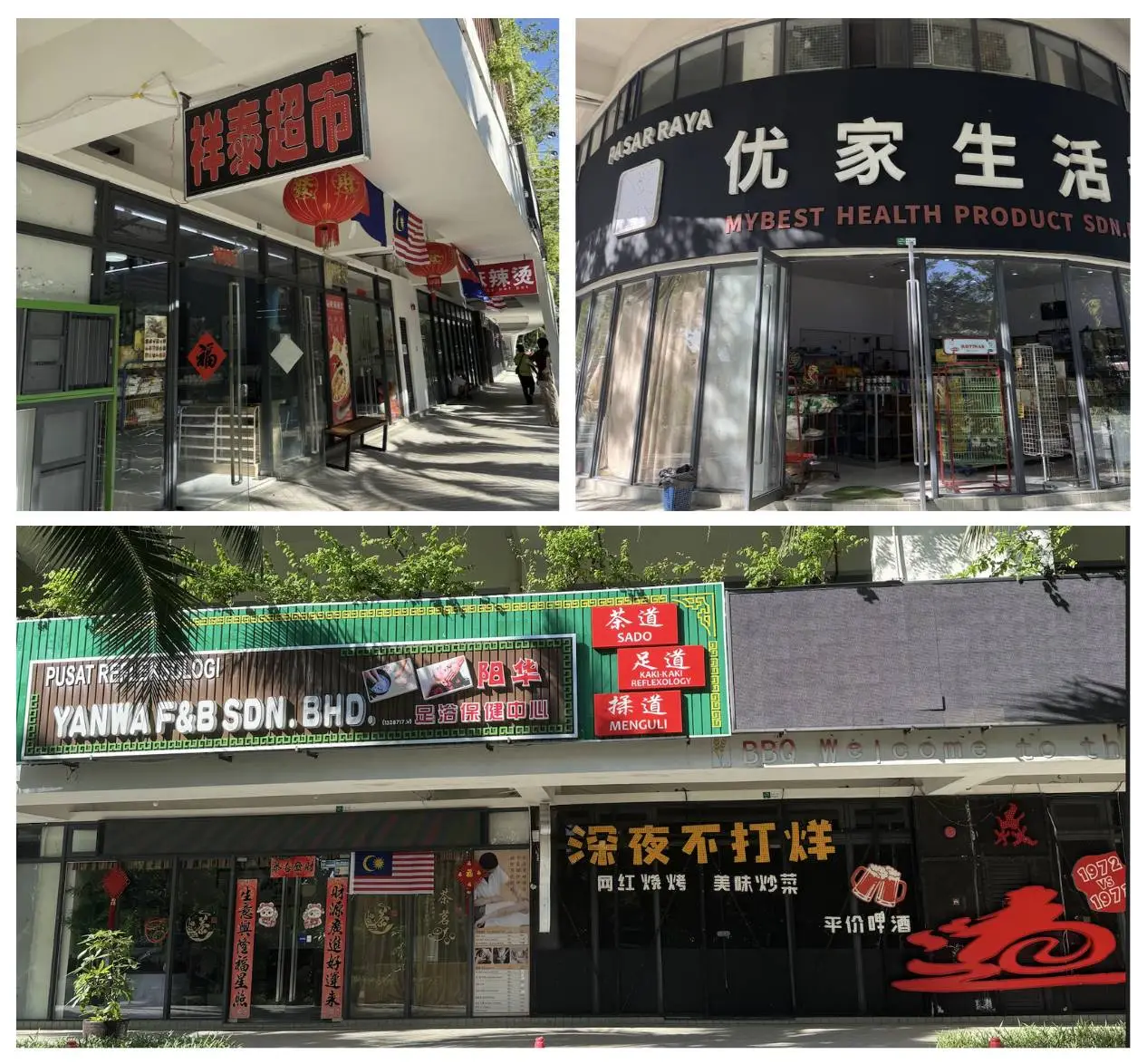
For practitioners in the Web3 field, this seemingly strange and sharp contrast may not be unfamiliar.
Many people in China also choose a "geographic arbitrage" lifestyle. For example, they write code by the Erhai Lake in Dali, hold online meetings by the sea in Aranya, or maintain remote work in Hegang at one-tenth the cost of first-tier cities.
The desolation of Forest City and the vitality of Network School are very similar to the Web3 industry itself: outside the mainstream vision, a group of people are building something on the ruins.
The people who gather here often share a similar trajectory: tired of the involution of traditional tech companies, a firm believer in the future of Web3, and a willingness to trade lower costs for greater entrepreneurial freedom. They might participate in Token2049 in Singapore and then return to this surprisingly quiet island to continue coding.
This community, built by Balaji, is trying to create a Web3 utopia in the most unlikely place.
Hello, and welcome to Network School—Harvard's ideal city that defies conventional definitions and is ambitiously attempting to create a new era.
Living costs and accommodation
The Network School's main community activities are centered around two locations: the community center and the hotel area.
The community center on the ground floor of the apartment building is equipped with meeting rooms and co-working spaces.
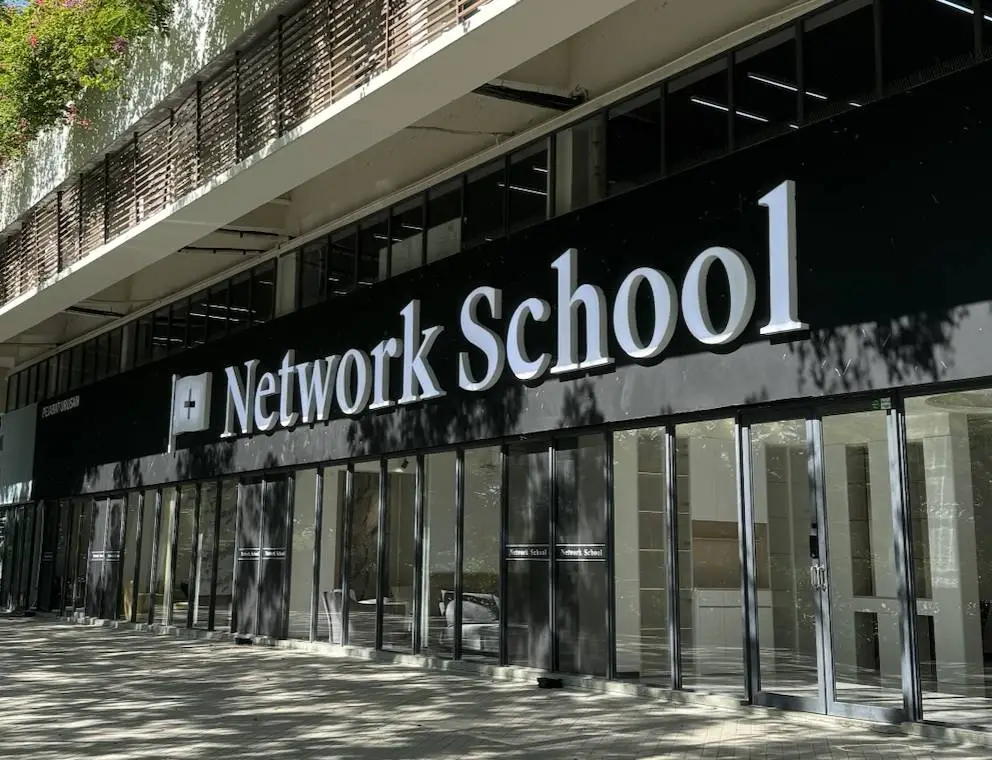
The Network School's permanent base is located in a seaside hotel. Short-term participants usually choose to stay in hotel rooms. Other public facilities such as the gym, conference rooms, Network School's exclusive cafe and library are all concentrated inside the hotel.
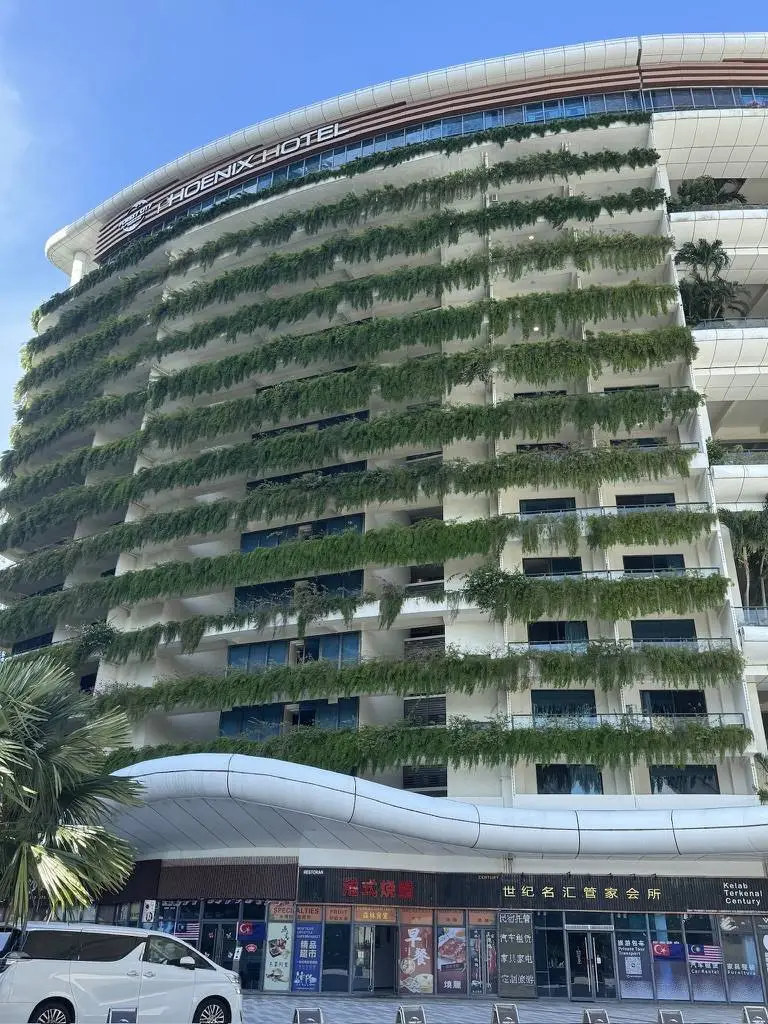
The current monthly fee for a double room is $1,500, which covers accommodation, three meals a day, access to fitness facilities, and all course fees. The Network School is open year-round, and participants can choose their residency duration based on their needs and schedule.
Short-term participants, such as those planning to stay for only one month, will stay in well-equipped hotel rooms, while members who choose to stay longer will stay in more well-equipped two-bedroom, one-living room apartments, enjoying a more comfortable living space.
The community provides three full meals a day: breakfast and dinner are buffet-style, and lunch boxes are available. It's worth noting that the community has adopted the healthy eating plan promoted by Bryan Johnson (founder of Blueprint), focusing on nutritional balance and a healthy lifestyle.
The Network School's gym is also a highlight. Built from scratch on the hotel's grounds, it's fully equipped with all the necessary equipment, and members can also initiate their own fitness sessions.
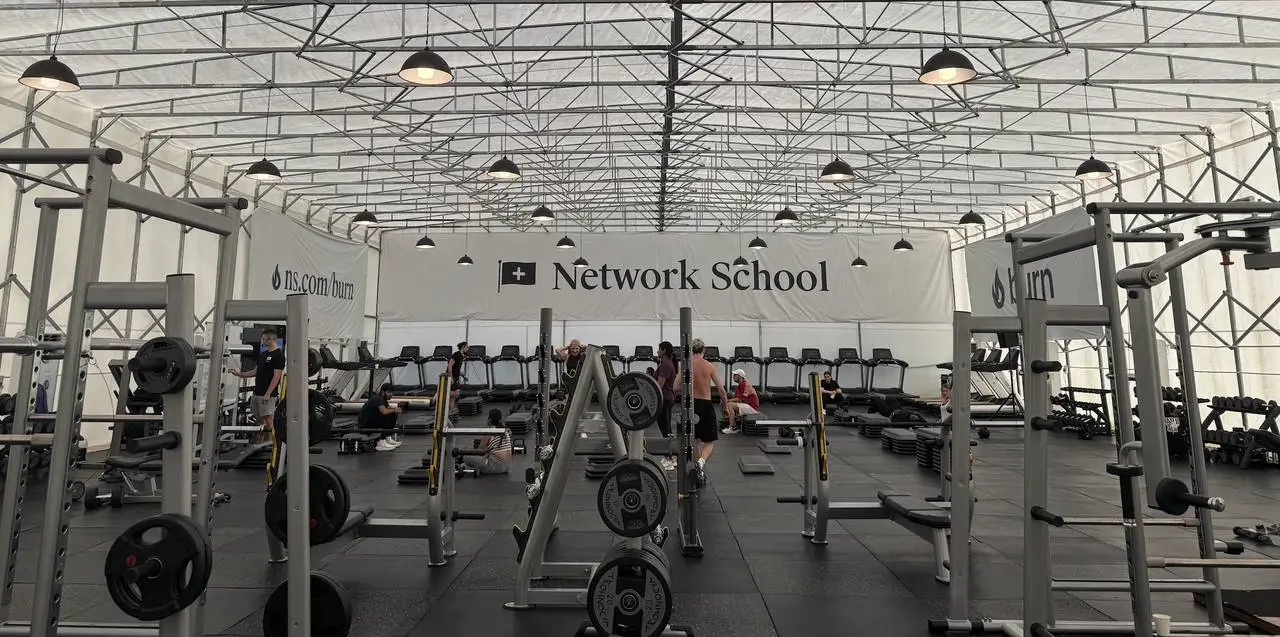
Network School's operating philosophy revolves around four core principles: Learn, Burn, Earn, and Fun. A typical day here goes something like this:
- Morning: Wake up, workout, breakfast on the Blueprint diet plan.
- Morning: Go to the co-working space and immerse yourself in remote work.
- Afternoon: Book club, Vibe Coding, AI status discussion, DeFi 101 course, or a freely arranged side project.
- Evening: Community dinners and spontaneously organized small events.
A gathering place for dark talents
“Many people see Network School and subconsciously think it’s a school, but in essence it’s more like a community for like-minded Web3 people. There’s no fixed schedule here, and learning is free,” Nikki explained.
Nikki (@nikkideyy) from the Philippines has been living here since June this year, which is 4 months now.
Network School doesn't have a curriculum or standardized learning tasks. Instead, the community occasionally throws out interesting learning challenges, such as discovering technical vulnerabilities on the website, creating promotional content, or shooting short videos. "Education" here feels more like an ongoing process of shared exploration.
According to Nikki, the current cohort has 270 students, making it the largest cohort to date. The Network School has undergone two phases of development: the first phase is a 90-day trial operation from September 23 to December 23, 2024.
The second phase will officially begin operations on March 1, 2025. This phase is called "Society-as-a-Service". Its goal is to train "social builders" in a more systematic way and prepare for future permanent campuses.
“Some people are digital nomads, others have relocated their offices here, and various accelerator and incubator programs like Solana Superteam and Monad Residency use this as a base of operations.”
The Solana Superteam Singapore team participated in the six-week Ignition incubation residency program at Network School from May to June, while the Monad Founder Residency conducted a three-week residency program in August of this year.
Perhaps the most important aspect for Network School participants is the community. Living, learning, and connecting with like-minded people is the biggest draw. Nikki resonates with this sentiment: "I'm at the intersection between wanting to create something and wanting to join something, and Network School has given me the perfect opportunity to explore what I really want to do in the future."
Her feelings also reflect the core value of Network School: it is a gathering place for dark talent, those who are not accepted by the traditional education system but are eager to create the future. These people have innovative thinking and a practical spirit, but may be overlooked by the mainstream system due to their non-traditional backgrounds.
Different people use this platform in different ways: some move their offices directly there, while others use it as a staging area to explore what to do next.
Network School has gradually become the intersection of Web3 culture and entrepreneurship.
View from the Presidential Suite
The hotel's meeting room has become a hub for Network School members. Nikki also showed us the presidential suite, featuring its largest meeting room. The hotel's location on the coast offers a clear view of Singapore across the water, as well as a bird's-eye view of Forest City, with its towering skyscrapers and extensive, meticulously planned residential areas. Sadly, however, most of these buildings remain vacant.
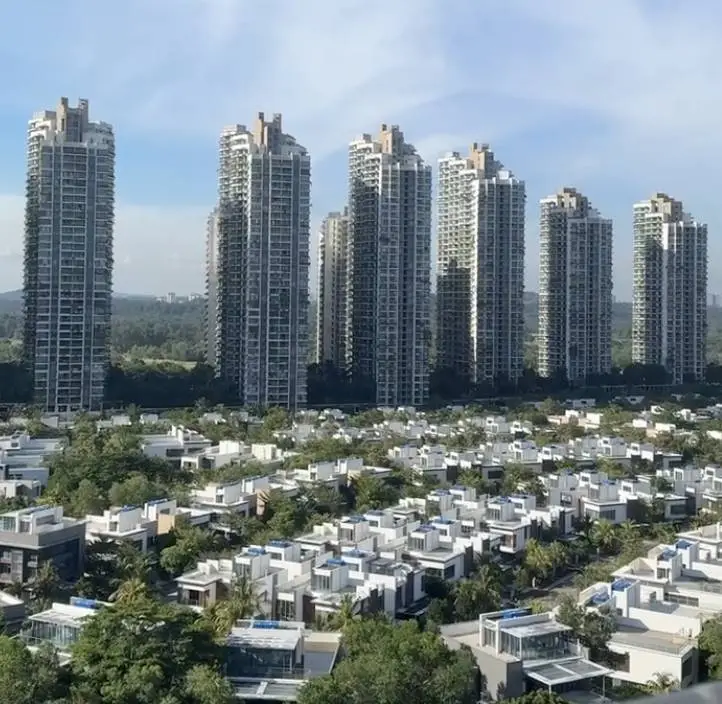
The scenery of the presidential suite, taken by the author
Nikki admitted that she and a friend went for a morning run in a nearby residential area, only to find that most of the houses they passed were empty. Nikki joked that what had been an ordinary run turned into a unique adventure.
In fact, the spectacular scenery surrounding Network School is a unique selling point in itself. Driving into Forest City, one is greeted by a line of towering skyscrapers, a striking contrast to the relatively flat terrain. The hotel entrance prominently displays a sign promoting Network School, and upon entering the lobby, the modern NS Cafe, nestled against a backdrop of vast floor-to-ceiling windows, is the first thing that catches the eye.
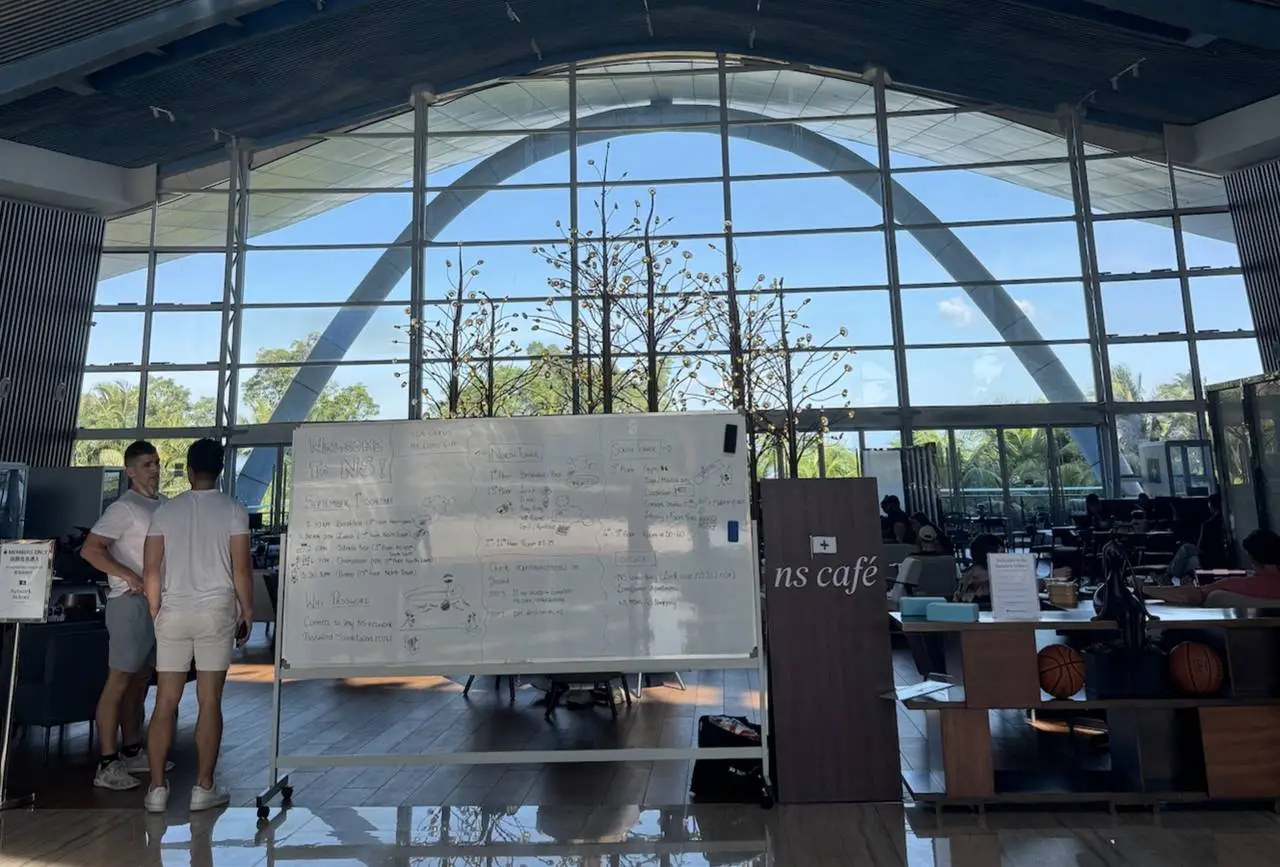
NS Cafe, located in front of the floor-to-ceiling windows, provides free coffee and drinking water to members
Author's Postscript
Before setting off, I had already heard a bit about Forest City. The most striking memory was the "ghost town" video that went viral on social media two years ago. In the video, Forest City was dilapidated and gloomy, with shop signs long gone. The entire city resembled a ghost town.
For this reason, I am deeply curious about the Network School that was chosen to be established here.
Driving into Forest City from the highway, the first thing that caught my eye was a row of tall buildings, reminiscent of a movie set. Upon entering Forest City, I first visited the community center located below the apartment buildings. Its brand-new exterior stood out against the abandoned shops surrounding it.
At that time, I couldn’t help but sigh, is this really what the so-called Network School is all about?
My impression of Network School changed completely after I arrived at their hotel. Upon entering the lobby, members were quietly working in the cafe, with floor-to-ceiling windows offering a breathtaking view of the ocean. Nikki showed me the meeting rooms, restaurant, library, yoga studio, and gym. All facilities are open to all members, who can also create their own clubs and organize sports activities.
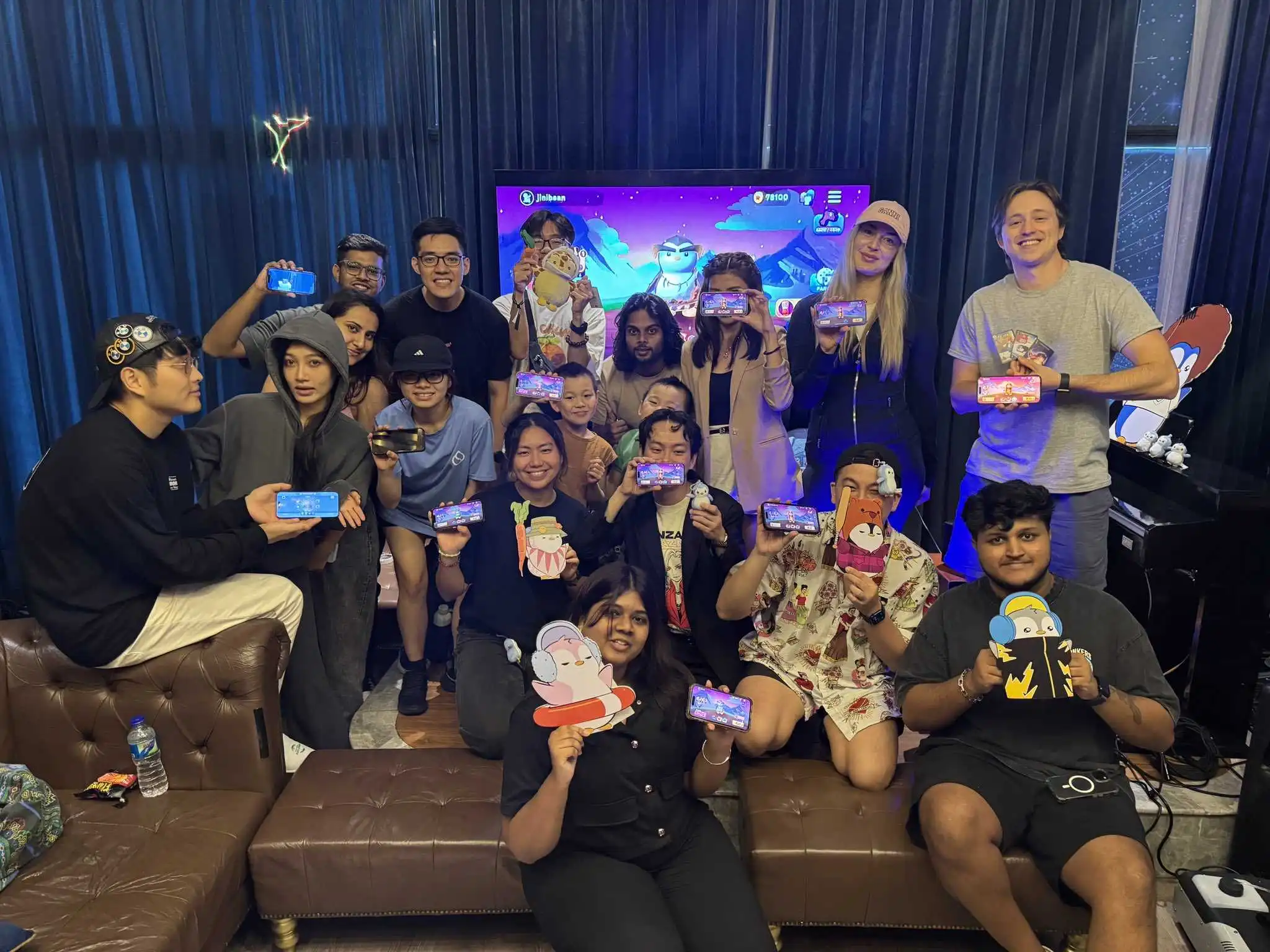
Nikki and her partner, who are also Fat Penguin owners, founded Pudgy NS and held the Pudgy Party event.
Since moving in in June, Nikki has noted that more and more businesses have recently begun opening. Her in-person visit revealed that Forest City isn't as desolate as the internet has suggested. It's not a messy place; workers are everywhere sweeping up fallen leaves, security personnel are on duty, and maintenance crews are maintaining equipment.
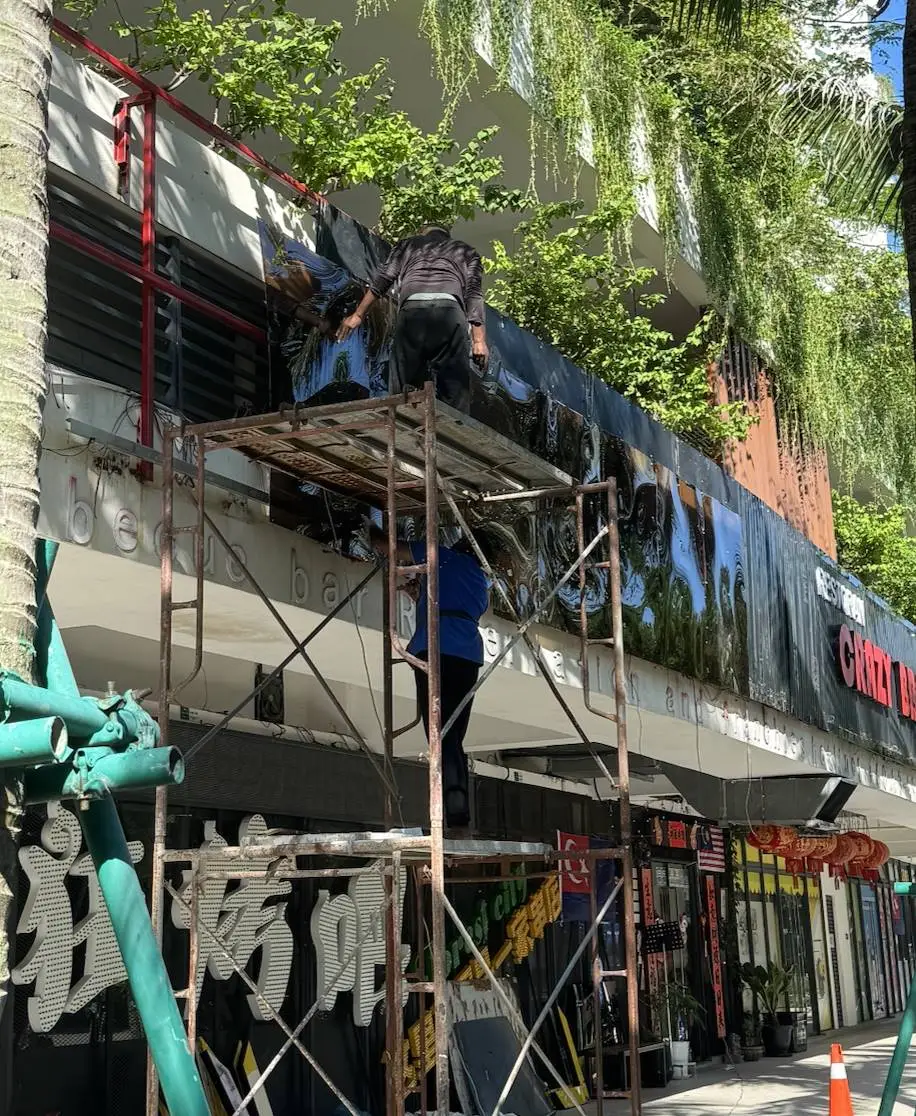
So, is it worth spending $1,500 to join Network School?
Perhaps the answer does not lie in the level of fees, but in whether you are willing to work with these "dark talents" to build a utopia for the digital age here.







